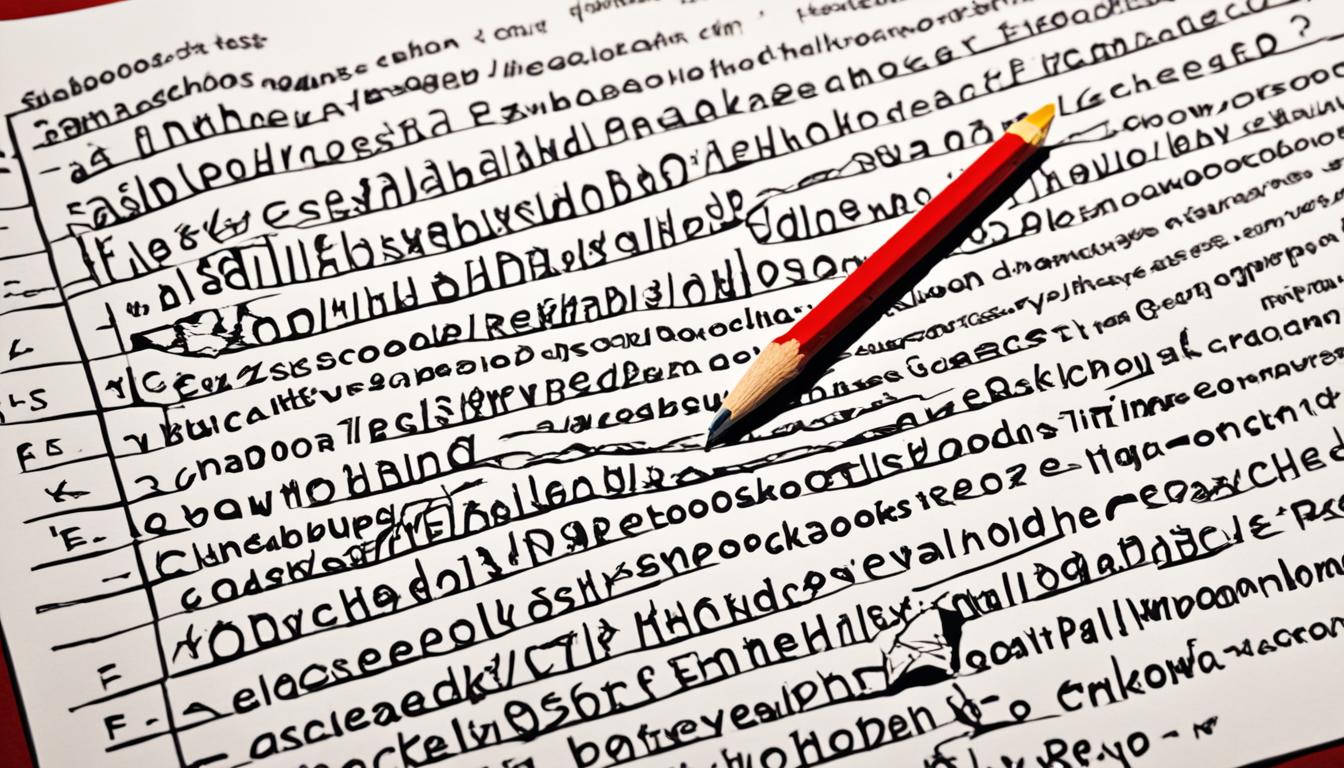Across the United States, the implications of not passing state exams set the stage for a critical conversation about student achievement and the educational framework. Recognized as a pivotal element of academic evaluation, state tests hold the power to alter the trajectory of a student’s educational journey significantly. While the outcomes of failing standardized tests are a source of anxiety for many, understanding the ramifications is essential for students, educators, and parents alike.
Failing state test consequences are not merely limited to immediate academic setbacks but can weave into the fabric of a student’s future, influencing college admissions and vocational prospects. Educational experts emphasize the importance of grasping the full spectrum of these implications to mitigate potential adverse effects on learners’ progress and self-efficacy.
Key Takeaways
- State tests are a barometer of student learning, to which significant consequences are attached.
- Failing can trigger a range of interventions including remediation and potential retention.
- The emotional impact on students underscores the need for supportive measures in education.
- Understanding the potential long-term effects is crucial for academic and career planning.
- Being informed about these outcomes empowers stakeholders to seek improvement in educational policies.
Understanding State Testing and Its Significance
The importance of state testing is multifaceted, playing a critical role in evaluating student performance and shaping educational direction. These assessments, integral to standardized testing in schools, serve as key indicators within national assessment programs, directly influencing curriculum development and instructional strategies. However, there is a robust dialogue concerning the efficacy and fairness of these testing methods, leading to discussions around educational equity and the exploration of alternative to standardized tests.
The Role of Standardized Tests in Education
Standardized tests are designed with the purpose of standardized tests clearly in mind: to objectively quantify measuring student achievement across a wide demographic. These tests are often used to compare students on a national scale, providing valuable data towards improving educational outcomes and holding schools accountable for student success.
Performance-Based Assessment: An Alternative Approach
Focusing on performance-based assessment benefits, this alternative method highlights the potential for a more nuanced approach to evaluating real-world skills. Unlike traditional exams, these assessments emphasize practical application over rote memory, encouraging a deeper understanding and fostering vital skills such as critical thinking and problem-solving.
Challenges of One-Size-Fits-All Assessments
The limitations of standardized tests become apparent when considering the diverse student population they serve. There’s a growing concern over the drawbacks of uniform assessment, which may not accommodate diverse learning styles or backgrounds, potentially leading to a widening achievement gap and raising questions about educational equity. Thus, exploring these challenges is crucial for creating a more inclusive education system.
| Assessment Type | Focus | Advantages | Limitations |
|---|---|---|---|
| Standardized Tests | General Competence | Comparability, Accountability | May overlook individual learning needs |
| Performance-Based Assessments | Real-World Skills | Encourages critical thinking and problem-solving | More resource-intensive to create and assess |
What Happens If You Fail the State Test
Confronting the reality of failing state exam consequences can be daunting for any student. Often, the initial repercussion involves retaking the test, which can be offered during the next testing cycle. Schools may provide various forms of remedial support to assist students in preparing to retake the exam. This support typically includes additional study sessions, personalized tutoring, and enrollment in supplementary courses designed to address specific areas of weakness.
It’s not uncommon for students to face emotional challenges after failing a test. The psychological impact may manifest as stress, anxiety, or a decline in self-confidence. It is crucial for educators and parents to offer encouragement and constructive feedback during this period. Formulating a clear plan to tackle the exam again can help mitigate the associated stress and enable students to approach retaking the test with determination and a positive mindset.
Beyond the examination itself, schools are poised to implement strategies that go beyond simply passing the test. Holistic remedial support aims not only to help learners surpass their academic hurdles but also to cultivate resilience and adaptive learning skills that will serve them throughout their educational journey and beyond.
- Identify focus areas for improvement and devise targeted study tactics
- Engaging with peer study groups for collaborative learning
- Utilizing additional resources like practice tests and educational software
- Seeking emotional support from counselors when dealing with the stress of retaking the test
For schools, the imperative extends to minimizing the failing state exam consequences by implementing a robust support system. This system typically includes structured remediation programs, regular progress monitoring, and, if necessary, adjustments to the curriculum to ensure alignment with student needs.

Finally, it’s important to remember that while retaking the test represents a short-term challenge, it is also an opportunity for growth. With proper remedial support, students can transform their initial setbacks into powerful learning experiences that lead to future academic success.
Implications of Failing State Exams on Academic Progression
The repercussions of failing state examination impact students profoundly, influencing their educational routes significantly. One of the immediate consequences that raises concern is grade retention. Students who do not meet the required benchmarks may find themselves repeating a grade, which can disrupt their educational timeline and potentially affect their social and emotional well-being. Furthermore, such setbacks can influence students’ future course placements, with access to advanced or specialized classes often contingent on standardized test performance. This can further accentuate the disparity in educational opportunities and contribute to a widened achievement gap.
In the face of these challenges, educational institutions often channel efforts into remedial strategies to bolster students’ chances of academic advancement. Summer school programs, credit recovery sessions, and alternative assessment opportunities are provided to support students who haven’t met state exam standards. These programs aim to address learning gaps and arm students with the knowledge and skills necessary to succeed in subsequent assessments. Yet, while these interventions are beneficial, they also highlight the necessity for ongoing support and tailored instructional approaches to meet diverse learner needs.
To navigate the consequences of exam failure, education systems are increasingly recognizing the importance of providing strategic support and resources. Initiatives such as personalized learning plans, tutoring services, and counseling can play pivotal roles in assisting students to overcome the hurdles of failing state exams. With a concerted effort to understand and address the individual challenges faced by students, educators can foster environments conducive to learning and growth, ensuring that every student has the opportunity to achieve their full potential and progress academically.
FAQ
What are the potential consequences of failing a state test?
What is the purpose of standardized tests in education?
How do standardized tests impact curriculum and instruction?
What is performance-based assessment and how is it beneficial?
What are the limitations of standardized tests?
How can failing a state test impact educational equity?
What are the immediate consequences of failing a state test?
How can students cope with the emotional impact of failing a state test?
What are the potential implications of failing state exams on academic progression?
Are there alternative pathways for students who fail state exams?
What strategies and resources are available to support students who have failed state exams?
Source Links
- https://www.nea.org/nea-today/all-news-articles/standardized-testing-still-failing-students
- https://gadflyonthewallblog.com/2022/10/01/when-good-students-get-bad-standardized-test-scores/
- https://www.quora.com/What-will-happen-if-I-fail-my-state-test-I-am-passing-all-of-my-classes-and-am-currently-in-8th-grade-I-always-do-awful-on-big-tests-such-as-state-tests-but-really-well-for-normal-quizzes-assignments-Will-I-get-held





